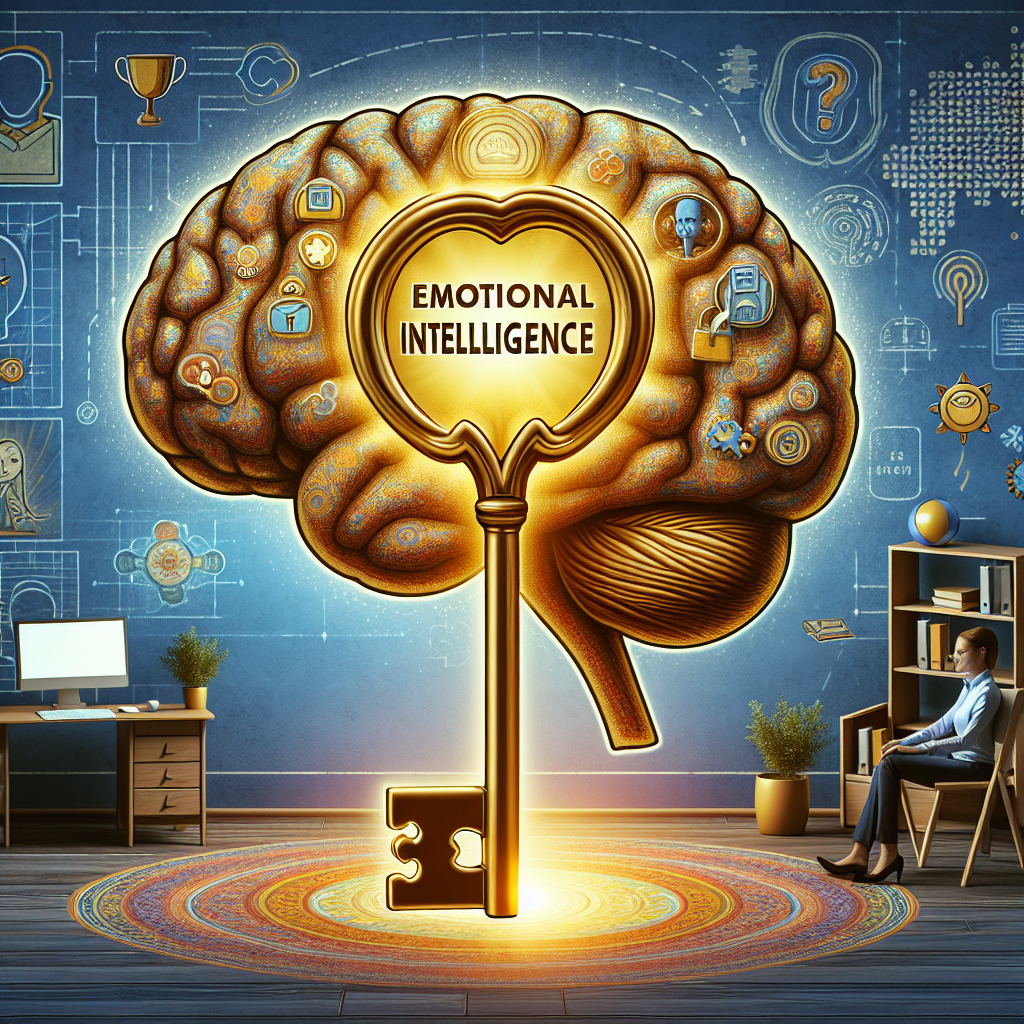In today’s fast-paced and competitive world, success is not just determined by intelligence or technical skills. Emotional intelligence, or EQ, plays a crucial role in personal and professional success. It is the ability to understand, manage, and express one’s emotions, as well as to understand and influence the emotions of others. Those with high emotional intelligence are better able to navigate the complexities of relationships, communicate effectively, and make sound decisions. In this article, we will explore why emotional intelligence is the key to personal and professional success.
Emotional intelligence is important in personal and professional settings because it affects how we manage behavior, navigate social complexities, and make personal decisions that achieve positive results. Research has shown that individuals with high emotional intelligence tend to have better mental health, higher job performance, and stronger relationships. They are also more likely to be resilient in the face of challenges and setbacks.
One of the key components of emotional intelligence is self-awareness. This involves recognizing one’s own emotions and how they affect thoughts and behavior. By understanding their own emotions, individuals can better regulate their responses and make more thoughtful decisions. This self-awareness also allows individuals to recognize their strengths and weaknesses, enabling them to work on areas that need improvement.
Another important aspect of emotional intelligence is self-regulation. This involves managing one’s own emotions and impulses in a constructive way. Individuals with high emotional intelligence are able to control their emotions rather than being controlled by them. This allows them to stay calm under pressure, think before acting, and maintain a positive attitude even in difficult situations.
Empathy is another key component of emotional intelligence. This involves understanding and sharing the emotions of others. Individuals with high levels of empathy are better able to connect with others, build strong relationships, and work effectively in teams. They are also more likely to be seen as trustworthy and likable, which can be advantageous in both personal and professional settings.
Effective communication is also a vital aspect of emotional intelligence. Individuals with high emotional intelligence are able to express their thoughts and feelings clearly and effectively. They are also skilled at listening to others and understanding their perspectives. This ability to communicate well can lead to stronger relationships and better collaboration with others.
In the workplace, emotional intelligence can have a significant impact on success. Leaders with high emotional intelligence are better able to inspire and motivate their teams, resolve conflicts, and make decisions that benefit the organization as a whole. Employees with high emotional intelligence are better able to work well with others, communicate effectively, and adapt to changing circumstances. This can lead to increased job satisfaction, higher levels of productivity, and greater career advancement opportunities.
In personal relationships, emotional intelligence can also play a crucial role. Individuals with high emotional intelligence are better able to navigate conflicts, communicate effectively, and maintain strong relationships with others. They are more able to recognize and respond to the emotions of their partners, friends, and family members, leading to deeper connections and greater satisfaction in relationships.
FAQs:
Q: Can emotional intelligence be developed?
A: Yes, emotional intelligence can be developed through practice and self-awareness. By actively working on increasing emotional intelligence, individuals can improve their ability to understand and manage their emotions.
Q: How can I improve my emotional intelligence?
A: There are several ways to improve emotional intelligence, such as practicing self-awareness, managing stress effectively, listening to others with empathy, and seeking feedback from others on your emotional responses.
Q: What are the benefits of emotional intelligence in the workplace?
A: Emotional intelligence can lead to better leadership, collaboration, communication, and decision-making in the workplace. It can also lead to higher levels of job satisfaction and career advancement opportunities.
In conclusion, emotional intelligence is a key factor in determining personal and professional success. By developing emotional intelligence skills such as self-awareness, self-regulation, empathy, and effective communication, individuals can improve their relationships, job performance, and overall well-being. It is essential for individuals to recognize the importance of emotional intelligence and actively work on improving their EQ in order to achieve their personal and professional goals.




Leave A Comment